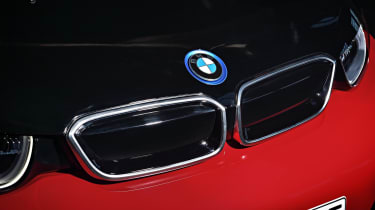BMW i3 hatchback (2013-2022) - Reliability & safety
BMW i3 reliability should be rock-solid as long as the batteries hold up
Owning a BMW i3 should be hassle-free. Although the four-star Euro NCAP safety rating the car was given may seem slightly off the pace, passenger protection is strong.
BMW i3 reliability
Electric cars generally have a good reputation for reliability because there are fewer moving parts to go wrong and maintain. Too few i3 owners participated in our 2021 Driver Power satisfaction survey for the car to be individually featured, and BMW’s performance as a brand has slipped of late, coming 21st out of 29 manufacturers in the survey with 19.2% of owners reporting a fault in the first year of ownership.
However, owners rated their cars’ on-board technology – including infotainment and connectivity – highly, and were quick to praise BMW’s engines and gearboxes, as well as ride and handling. The biggest disappointment was a low rating for overall running costs. In theory, the i3 should perform well here, although owners say that high maintenance costs are a BMW failing.
Safety
Given the i3's hi-tech design, it comes as a surprise that it was only awarded four stars when it was crash-tested by Euro NCAP. However, drilling down into the individual category scores reveal a car that does a pretty good job of protecting its occupants. The i3 scored 86% for adult-occupant protection and 81% in the child-occupant category. While these scores are decent, a 57% pedestrian protection result affected the i3’s overall star rating.
All i3s come with six airbags, electronic stability control and a seatbelt reminder buzzer as standard. For around £800, the optional Driver Assistant Plus package adds active cruise control, a forward collision warning, preventative pedestrian protection, a lane departure warning, speed limit information, traffic jam assist and a route ahead assistant.









